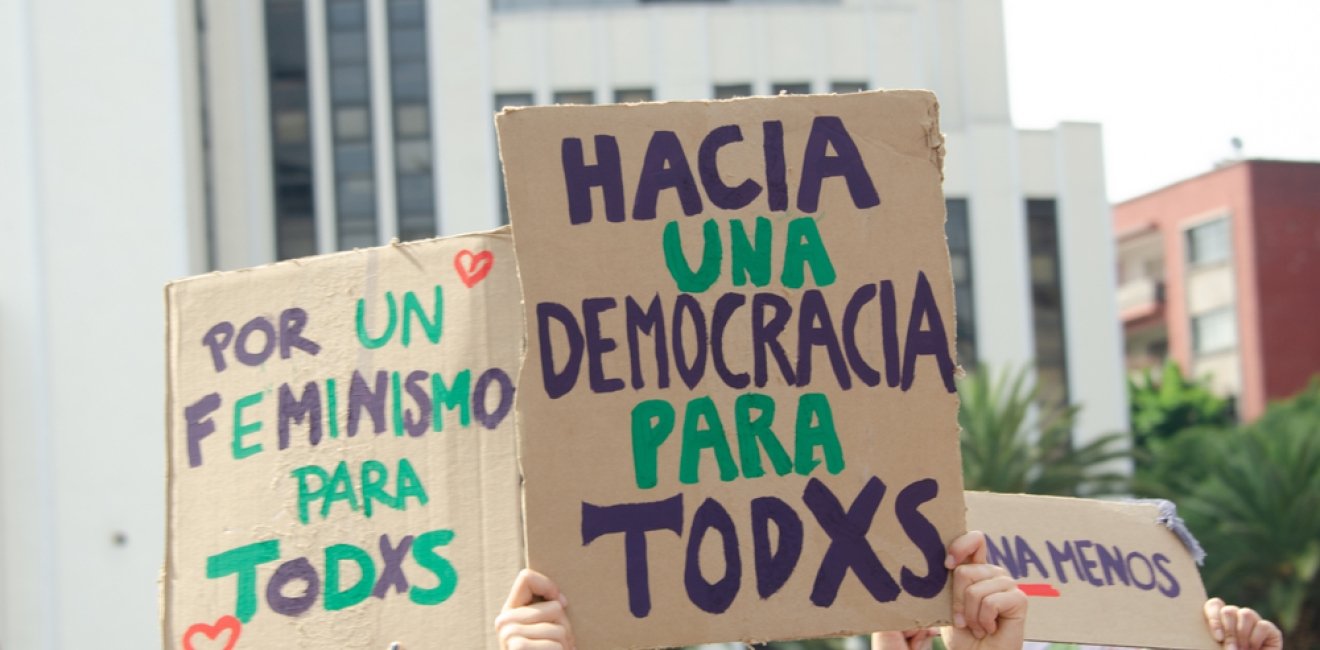
A blog of the Latin America Program
The June presidential election in Mexico represents a historic moment for gender parity. For the first time in North America, both leading candidates in a presidential election are women. Claudia Sheinbaum, from the ruling Morena party, who is leading widely in polls, is running against Xóchitl Gálvez, representing the opposition Frente Amplio coalition. That all but guarantees that Mexico will have its first female president in December, a symbolically important development in a region that has struggled to achieve gender equality. Still, electing a woman in Mexico does not assure a feminist government.
Making History
For 71 years, Mexico was ruled under a one-party system led by the Institutional Revolutionary Party (PRI). Every six years, a male president would select his male successor. Elections were theatrical. The introduction of genuinely competitive elections in 2000 helped women gain more space in politics. Both Sheinbaum and Gálvez started their political careers during the presidency of Vicente Fox, the winner of the 2000 election.
Electing a woman in Mexico does not assure a feminist government.”
In 2013, Mexico began taking explicit steps to achieve gender parity, including through its National Development Plan. Between 2008 and 2015, Mexico increased spending on gender parity initiatives by 157%. Around that time, an electoral reform required political parties to put forward female candidates.
Still, Mexico remained a dangerous place to be a woman. In the first three months of 2023, the country recorded over 200 femicides. Meanwhile, the presidency remained in the hands of men following the 2006, 2012, and 2018 elections.
A Feminist Ally?
With the only serious male presidential candidate polling a distant third, there is little question that a woman will break a formidable glass ceiling this year. The question is whether that will meaningfully change government policy in Mexico and improve the lives of women and girls.
Sheinbaum describes herself as a feminist and supports the legalization of abortion. But as a protégé of President Andrés Manuel López Obrador, there is reason to doubt her feminist bona fides. López Obrador has failed to condone violence against women and he has repeatedly clashed with feminists. In his 2018 presidential campaign, he promised to give women a more prominent role in Mexican society by expanding social services and education and addressing the violence that has made Mexico one of the most violent counties in the world for women. In office, however, he turned on feminist movements, dismissing them as “conservative,” his favorite insult. Rather than expanding social services, he shut down the estancias infantiles–state-supported day care centers–a blow to low-income women who depended upon free child care to enter the workforce.
‘Intelligence, Heart, and a Firm Hand’
For her part, Gálvez’s meteoric rise was in part the result of Mexico’s advances towards gender parity and other changes to its political culture. Ten years ago, it would have been unthinkable to expect an indigenous woman to compete for the country’s top job. Still, like Sheinbaum, Gálvez, who promises to lead Mexico with “intelligence, heart, and a firm hand,” has not convinced Mexican women that she would champion their interests.
Before this election, Gálvez served as a legislator for the historically conservative National Action Party (PAN). Though she has drawn attention to the president’s controversial record on women’s issues, she is hesitant to label herself a feminist, leading critics to describe her as an “occasional feminist.”
No matter what, Mexico will almost surely make history in December, electing a woman to lead the country before the United States or Canada has done so.”
No matter what, Mexico will almost surely make history in December, electing a woman to lead the country before the United States or Canada has done so. That reflects notable progress in a country that has spent decades trying to overcome deep cultural and social obstacles to gender equality. Putting a woman into the highest office, however, is only the first step to empowering Mexican women, a process that will require new approaches to public policy and security.
Author


Latin America Program
The Wilson Center’s prestigious Latin America Program provides non-partisan expertise to a broad community of decision makers in the United States and Latin America on critical policy issues facing the Hemisphere. The Program provides insightful and actionable research for policymakers, private sector leaders, journalists, and public intellectuals in the United States and Latin America. To bridge the gap between scholarship and policy action, it fosters new inquiry, sponsors high-level public and private meetings among multiple stakeholders, and explores policy options to improve outcomes for citizens throughout the Americas. Drawing on the Wilson Center’s strength as the nation’s key non-partisan policy forum, the Program serves as a trusted source of analysis and a vital point of contact between the worlds of scholarship and action. Read more

Explore More in Weekly Asado
Browse Weekly Asado
Dengue Haunts South America’s Summers

Lessons from Costa Rica’s Economic Transformation

Women and Latin America’s Digital Revolution

